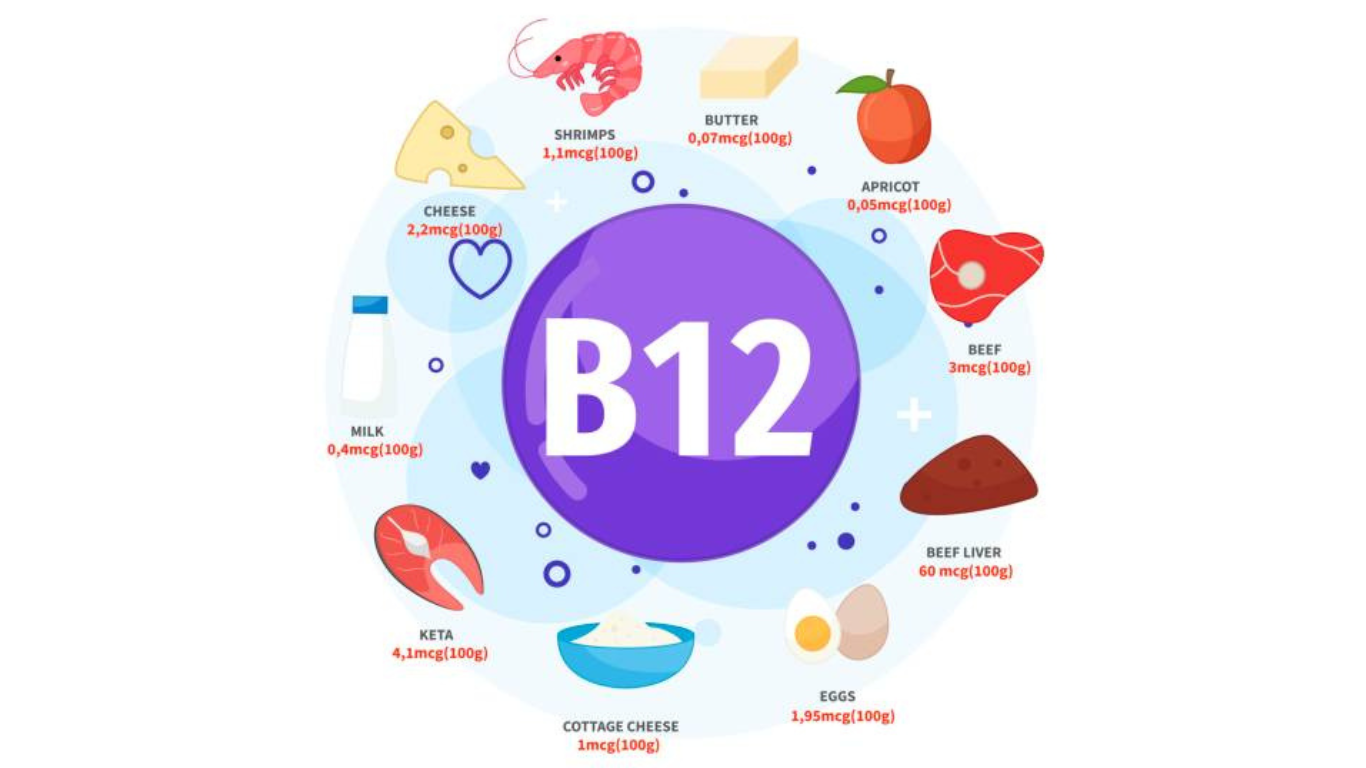Table of Contents
What is vitamin B12?
Vitamin B12 Deficiency: Vitamin B12 is a significant nutrient that is utilized in the production of red blood cells, brain function, and nervous system function and in the synthesis of DNA. Vitamin B12 is one of the water-soluble vitamins that is found mostly in animal foods.
Read also: Eating Wells Top10 Food & Nutrition 2025 What Hot This Year..
Causes of Vitamin B12 Deficiency
Deficiency in vitamin B12 may arise from several causes, such as:
- Poor Diet: Vegetarians and vegans are more prone to B12 deficiency since it is primarily concentrated in meat, eggs, and milk.
- Gastrointestinal Disorders: Pernicious anemia, Crohn’s disease, and celiac disease may interfere with B12 absorption.
- Aging: With age, levels of stomach acid decrease, and therefore B12 absorption is decreased.
- Medications: Certain drugs, including antacids and metformin, can impair B12 absorption.
- Alcohol and Smoking: Excessive drinking and smoking may disrupt nutrient absorption.
Symptoms of Vitamin B12 Deficiency
B12 deficiency can cause many health problems. Some of the common symptoms are:
- Severe weakness and fatigue
- Memory impairment and difficulty focusing
- Pale color of skin
- Numbness or tingling in hands and feet
- Shortness of breath and fast pulse
- Depression, mood swings, and irritability
- Burning sensation on the tongue and mouth ulcers
- Loss of appetite and weight loss
- Problem with balance and dizziness
Read also: Thyroid Disease: A Natural Recovery Course with Diet and Exercise
Effects of Vitamin B12 Deficiency
If not treated, vitamin B12 deficiency may result in severe health issues, including:
- Anemia: Red blood cell deficiency impacts oxygenation in the body.
- Nerve Damage: Long-term deficiency can lead to neurological issues.
- Heart Disease: Elevated homocysteine levels raise the risk of cardiovascular disease.
- Reproductive Issues: Deficiency can affect fertility in women.
How to Diagnose Vitamin B12 Deficiency
If you have any of the above-mentioned symptoms, visit a doctor. Some of the usual tests for diagnosing B12 deficiency are:
- Blood Test: The most popular way to test B12 levels.
- Homocysteine Test: Indirectly determines B12 levels in the body.
- Methylmalonic Acid (MMA) Test: Another test to ensure B12 deficiency.
Methods of Treating Vitamin B12 Deficiency
1. Incorporate B12-Rich Foods in Your Diet
To avoid and treat B12 deficiency, include the following foods in your diet:
- Meat (chicken, mutton, beef, fish)
- Eggs
- Dairy foods (milk, yogurt, cheese)
- Seafood (salmon, tuna, shellfish)
- Fortified cereals and soy foods
Read also: Eli Lilly Rivals Weight Loss Drugs: Novo Nordisk to Indian Market with Mounjaro
2. Take Vitamin B12 Supplements
Dietary intake being insufficient, supplements under medical supervision are needed. These are:
- Oral Supplements (Tablets and Syrups)
- Injections (For Severe Deficiency Cases)
3. Treat Digestive Disorders
If B12 deficiency arises due to a digestive disorder, undergo proper medical treatment.
4. Regular Checkups
If you are vegetarian or above 50 years of age, monitoring B12 levels is recommended on a regular basis.
Conclusion
Vitamin B12 deficiency is a critical illness if not treated at the right time. It can be prevented and cured with a balanced diet, regular check-ups, and correct supplementation. If you experience any symptoms, consult a doctor immediately.
Follow Skylen.in for more health and nutrition updates!






